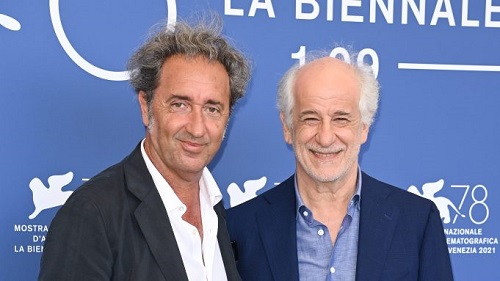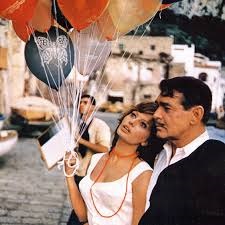Global Audiences Need More from Italy
TORONTO – Italian Director Paolo Sorrentino, whose latest movie Parthenope is breaking box office records in Italy, has announced that his next film will be another collaboration (his eighth) with four-time David Di Donatello Winner Toni Servillo. The two famously worked together on the Oscar Winning The Great Beauty, The Hand of God and Il Divo. Sorrentino is not divulging much about the project other than its title – La Grazia – which he says will be a “love story”.
La Grazia is reportedly slated to shoot in the spring of 2025, with Sorrentino penning the script and Annamaria Morelli producing under her banner The Apartment. Rome-based Distributor PiperFilm will be releasing the film in Italy.
For now, Toni Servillo as the star vehicle [yet again] is the only talking point. Yet Servillo who’s as good an actor as any – both in Italy and abroad – has oddly never penetrated the International market. And while he’s shared the screen with some actors of considerable cachet like Dustin Hoffman, Isabelle Huppert, Jean Reno and Connie Nielson, his talent deserves better. And so does Italy.
Like it or not, Artists – and often actors – are the de facto ambassadors for their country of origin, and their movies in the best of times can help bring a culture or nation into the global zeitgeist. Think Sophia Loren and her collaborations with Frank Sinatra, Cary Grant and Clark Gable, which made her a favourite in Hollywood and a household name around the world. Or Roberto Benigni who in the late 90s earned international recognition for writing, directing and starring in the Holocaust drama Life is Beautiful.
Why then, in the 21st century, are Italian Actors like Servillo struggling to reach global audiences? For a clue, we might return to Benigni to hone in on the potential culprit. During Benigni’s acceptance speech at the 71st Oscars he famously and hilariously confessed that, “This is a terrible mistake because I used up all my English”. According to EF EPI’s 2024 European classification, which gauges a country’s English speaking proficiency, Italy placed 30th among the 33 ranked nations. And that’s just ahead of France, Turkey and Azerbaijan. The reluctance to speak English at all costs is the Elephant in Italy’s room.
In the Hellenistic period, Greek was spoken among the educated classes. At the height of the Roman Empire, Latin was the lingua franca. And in the film Industry, the American market and Studio System [still] rule the day. There may be some in the Industry who insist on strawmanning American cinema as the place where art goes to die, but it’s this sort of counterintuitive thinking that keeps one from evolving – and succeeding. Italians don’t have to make Americanized films, but it wouldn’t hurt our actors to brush up on their English. Advertising Italy abroad could pay off in dividends for the Italian Industry.
To illustrate the point, in the late 2000s Roberto Benigni toured Italy with his improvisatory poetry show “Tutto Dante” – in which he explained and recited Dante’s Divine Comedy, combining it with humour and current events. He then learned English so that he could take the show to the U.S. and Canada. Servillo is a tremendous talent, and one that Italians should take pride in. But if in the year 64 AD, Nero, the most powerful man in the Western World and Emperor of Latin speaking Rome could excite himself to recite poetry in Greek, English should be a piece of cake for our boys.
Photo of Sorrentino and Servillo courtesy of Getty Images; photo of Sophia Loren and Clark Gable courtesy of Paramount Pictures
Massimo Volpe is a filmmaker and freelance writer from Toronto: he writes reviews of Italian films/content on Netflix





